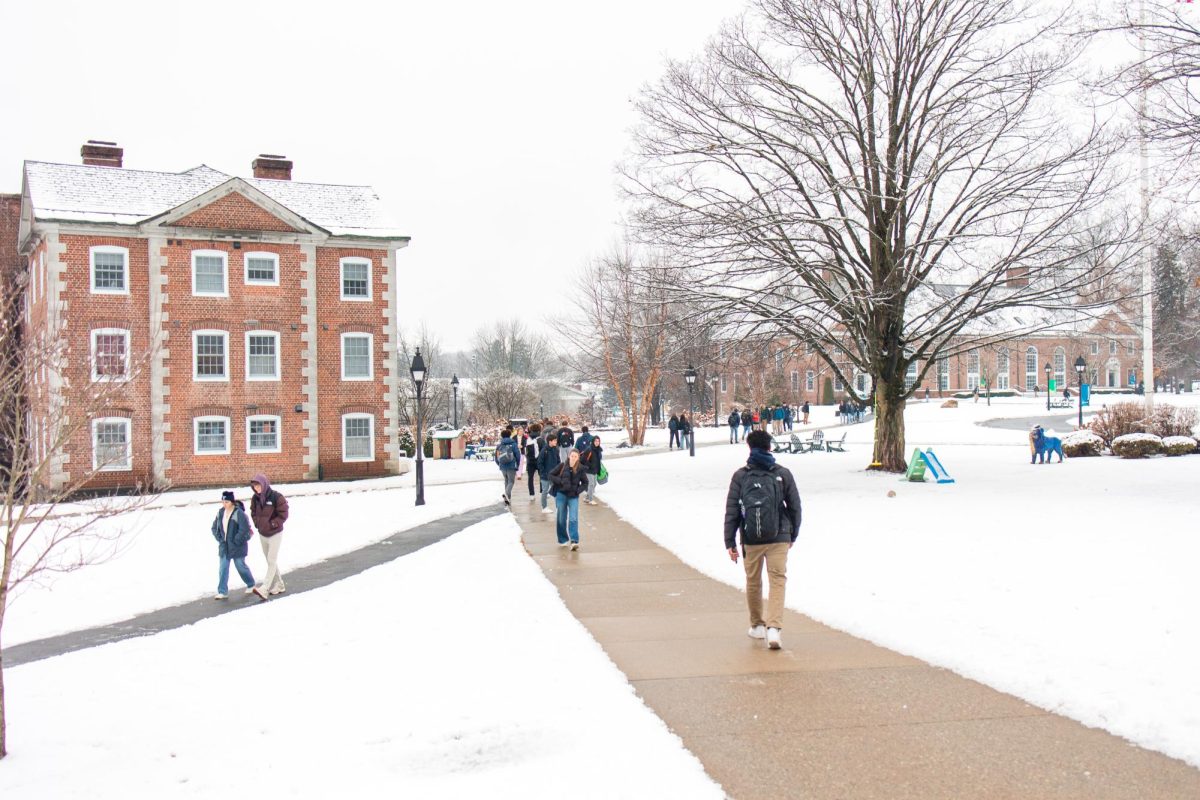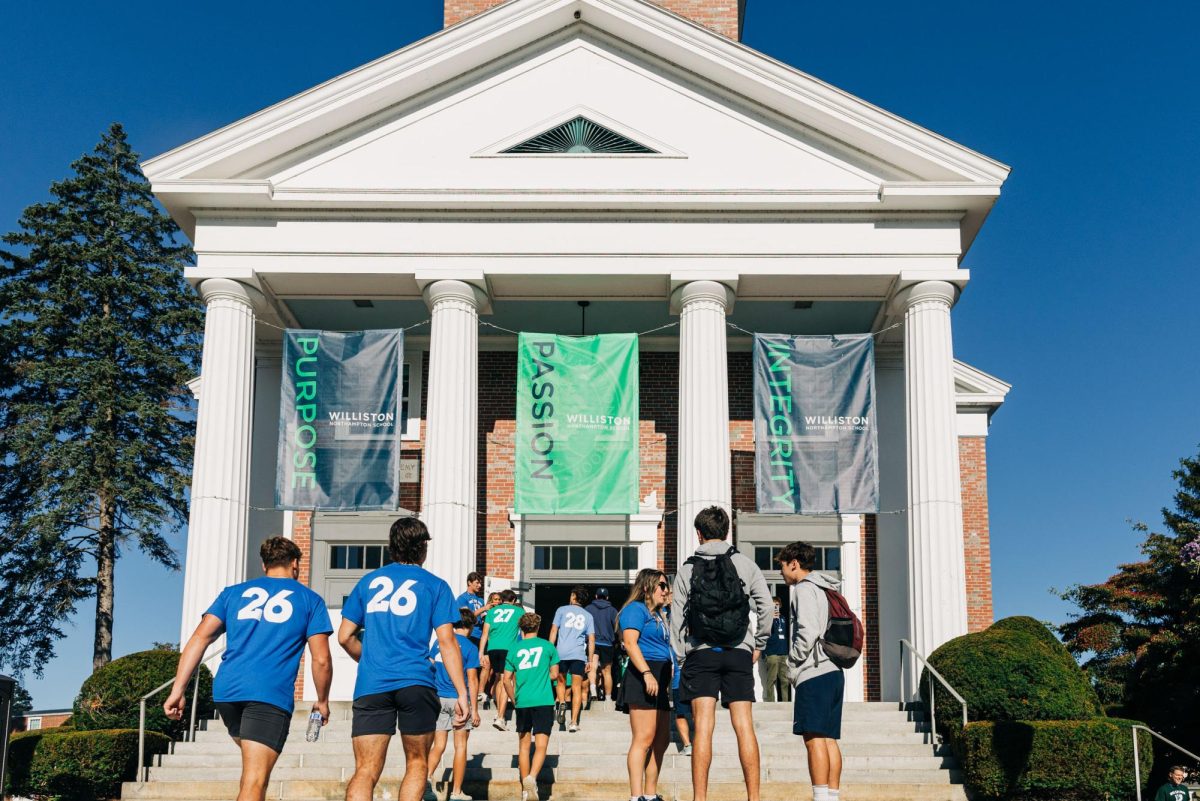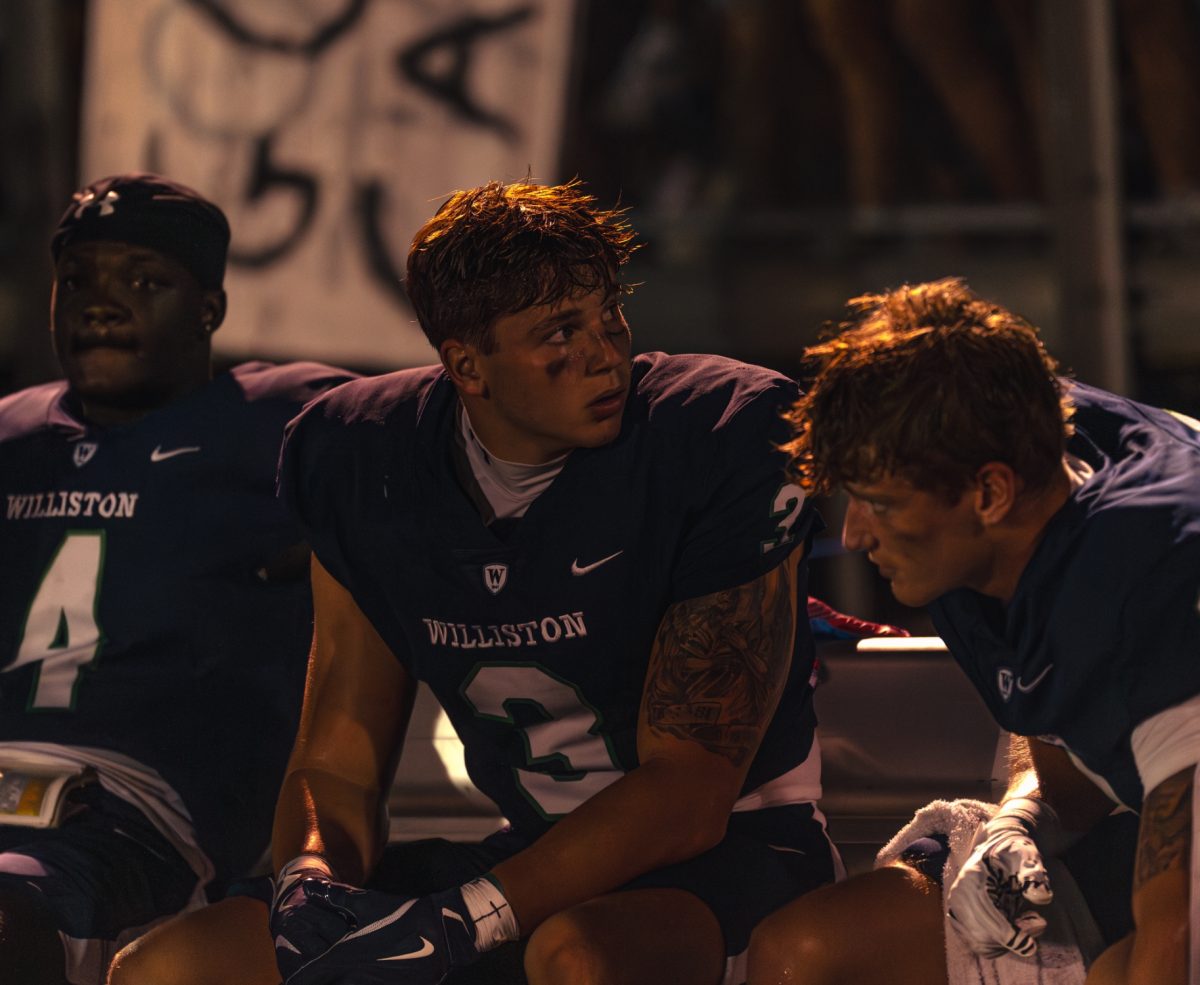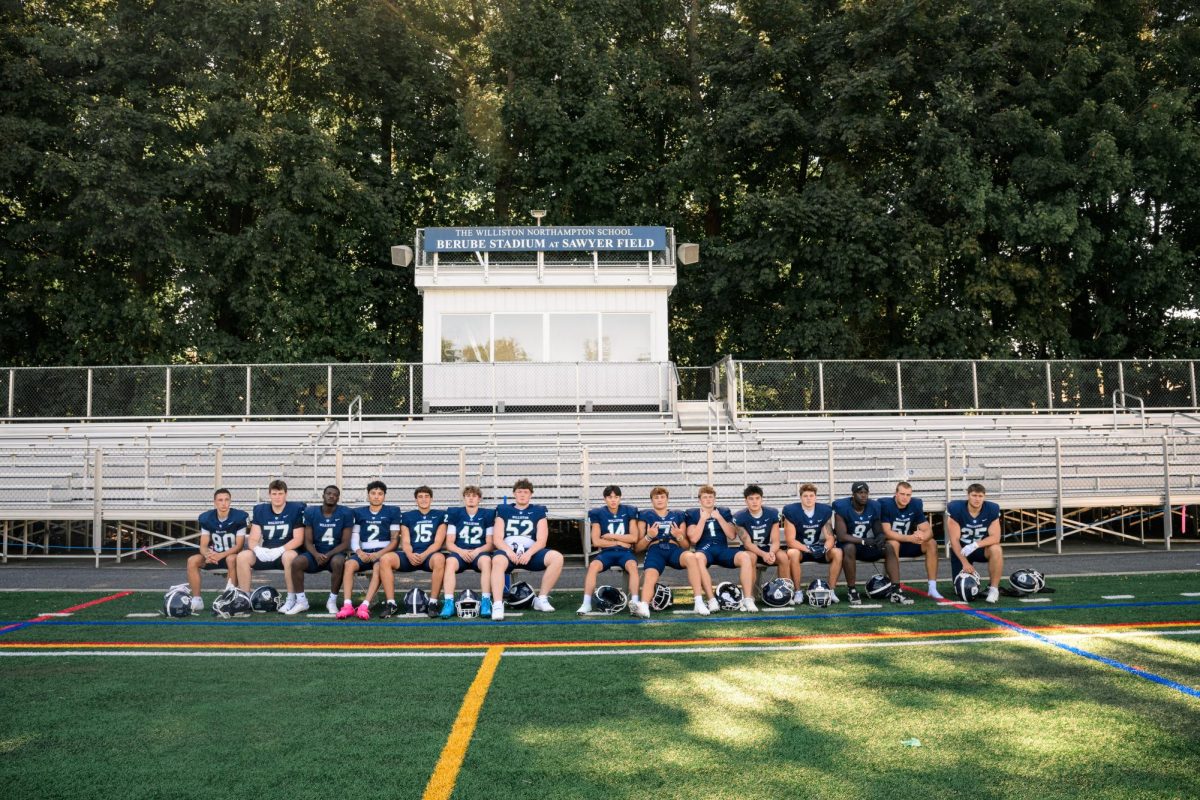The start of trimester two at Williston is infamous for being the longest and most grueling.
Now that we’re a few weeks into the second trimester, which started on Tuesday (Dec. 3), students are worried about balancing the upcoming workload with extracurricular commitments, personal time, and relationships. Stress is high. The amount of assignments and pace of classes is known to increase during T2. Often, it feels as if teachers cram in as many quizzes, tests, and projects as possible during the few weeks before Winter break, which starts with a half day on December 20.
Additionally, for freshmen, sophomores, and juniors, CORE classes begin, which replace some free blocks. Students often use free blocks to study and catch up on work, so losing a free block is losing valuable time.
Sophomore Riley Platt, a day student from South Hadley, Mass., says CORE has impacted her schedule.
“Core takes my sleep-in away and makes [my schedule] more stressful,” she said. Students also say trimester two is more stressful overall, especially in comparison with the first and third trimesters.
Riley feels trimester two has unique qualities that make it more difficult.
“School-wise it definitely is more stressful because everyone’s trying to cram everything in. I feel like in the spring it’s more chilled out just because it’s the end of the year, and at the beginning of the year everyone’s just slow-rolling into it,” she said. “I definitely feel like in the winter it’s so much worse. There are so many topics that are trying to be introduced.”
Junior Connor Graff, a day student from Easthampton, Mass., and Varsity Squash athlete in the winter, says there are other factors that contribute to the stress of second trimester.
“Trimester 2 is much more stressful because the weather sucks and it gets dark the second I leave school,” Connor said. “This makes my day feel super short and like I don’t have time.”
This applies to many athletes. By the time they are done with practice, it’s already dark outside which makes their time feel more limited. The average sunset time this month has been around 4:30 p.m.
The increasing workload has also impacted relationships and mental health. Junior Livia Locke, a day student from Southampton, Mass., and Varsity Squash athlete in the winter says the workload has impacted many of her relationships.
“I don’t have enough time to go outside with my friends, go to the mall, hang out with my boyfriend- there’s just a lot less time to do everything because I’m focused on work,” she said.
Many students not only find the workload heavy, but overwhelming. Riley feels it depends on your schedule and time-management strategies.
“I feel like if you just plan it out and do work if you have free time it’s not that bad, but definitely there are days when I’ll have 4 or 5 classes the next day and they’ll all assign homework so that’s overwhelming,” she said.
Other students feel time-management strategies are crucial. Livia shares strategies she uses to responsibly manage her time and complete her work.
“I manage my time by working for classes through my free blocks and spending enough time studying after school in my room,” she said.
Several students feel Williston can do more to support students during Trimester Two. Livia addresses one stress factor in particular.
“Make sure the amount of homework we are getting at the end of the day doesn’t exceed three hours, which it often does,” she said.
She is not the only one who feels this way. Junior Riana Shaw, a day student from Amherst, Mass., says she has roughly three to four hours of homework depending on the day, while senior Sophia DiTerlizzi, also a day student from Amherst, says she has two-and-a-half to three.
However, there are strategies to manage the workload. Laura Vachet, Director of Academic Support, says certain strategies are essential to managing work.
“The most important thing students (and faculty!) can do to maintain a healthy life balance is to THINK HARD about how they spend their time and PLAN AHEAD (like, literally use a planner or put appointments in their phone) for when they will address the ‘have-tos’ so they can enjoy the ‘want-tos,'” she said. “There is time for both if you are conscientious about how you spend your day. Self-care is not just naps and Netflix. It is also being kind to your future self by getting your work done!”
She also has advice for students who struggle with procrastination.
“You can’t address procrastination without understanding WHY you are putting things off,” she said. “Is it because the work is too hard? Do you not understand the assignment? Do you not know how or where to begin? You can get help with those questions. Email a teacher, ask a friend to work together during a free block.”





















